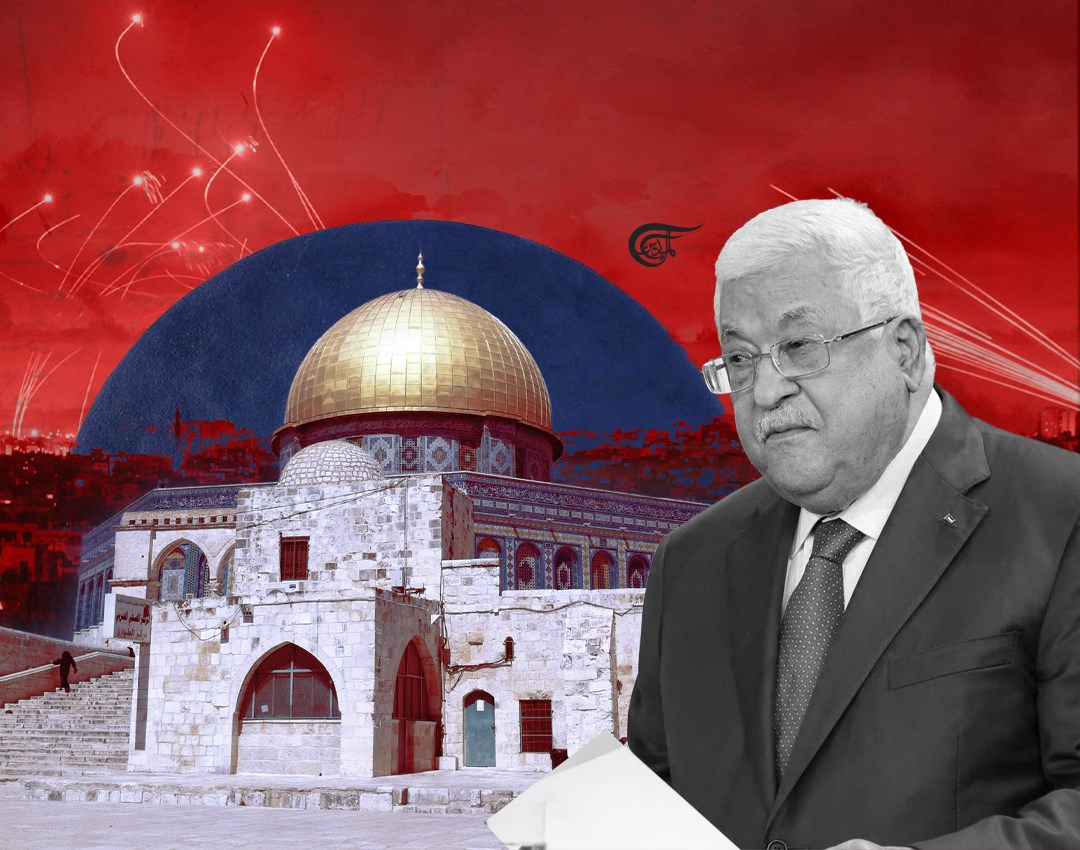Two key developments
Change is coming, but perhaps not with the speed promoted in the Israeli press and media. After all, the President is still healthy enough to make a 'state visit' to the People's Republic of China.
Recently, Palestinian political circles have been preoccupied with two key developments that would have significant repercussions on the overall Palestinian scene, should either or both of them occur.
The first is the issue of succession, the conflict surrounding it, and the features of the post-Abbas phase, in light of reports of Palestinian President Mahmoud Abbas' deteriorating health.
The second, which is not extraneous to the first and in fact may be connected to it, is the "long-term truce" that Egyptian mediation is reportedly striving to broker between "Israel" and the Resistance factions, especially Hamas.
The succession issue is both new and old. President Abbas is 87 years old, and news agencies have recently published reports of doctors visiting the Muqata'a (the presidential compound) and Abu Mazin undergoing tests in Amman and Ramallah. This issue has always triggered debate, concerns, and apprehension, which subside for a while only to resurface again later. It is an especially pressing issue in light of the President's insistence, in a manner verging on arrogance and stubbornness and on rejecting the discussion of options and alternatives for after he is gone. He is reluctant to appoint a deputy despite repeated urging, especially given the absence of clear and realistic mechanisms – as opposed to constitutional ones – for the transfer of power.
The succession issue is made more complicated and uncertain by two factors:
First, the multitude of responsibilities associated with the presidency and the other offices he holds. He is not only the president of the PA but also head of the PLO and Fatah and the commander-in-chief, which comes with a wide array of responsibilities and powers.
Second, the lack of a realistic consensus on who his 'understudy' should be. There is heated competition between at least half a dozen 'equal' contenders, each of whom believes himself to be more deserving of the succession than the others, or at least to have the required qualifications for filling the vacancy once it arises.
More importantly, the competition is heating up among the ranks of Fatah members, as well as some players from outside the movement, in the absence of realistic prospects for holding general elections and resorting to the ballot box. Despite the fact that for the vast majority of Palestinians holding elections is a pressing demand, the real players on the local, regional, and international levels do not want elections and prefer not to hold them in the foreseeable future – especially when most projections place Hamas and its allies as the frontrunners with the highest prospects, if not due to their increasing popularity, then due to Fatah's fragmentation and decline. The public deeply mistrusts Fatah after 30 years of experience with it at the helm of the PA, and far more critically, with it in charge of the PLO, having witnessed the disastrous results wrought on the Palestinian national movement and project under its control of leadership and decision-making institutions.
The fears surrounding the President's health and the post-Abbas phase have also spread to neighboring states and are no longer limited to the Palestinians or their affairs alone. "Israel" is at the forefront of those harboring fears and apprehensions and preparing to navigate the post-Abbas phase. Jordan, for its part, is fundamentally concerned with the issue due to its interest in avoiding two scenarios, each of them more bitter than the next, in the event of the failure to achieve a smooth, safe transition of power and leadership: The scenario of Hamas and its allies taking control, and the scenario of armed chaos and further fragmentation of the Palestinian situation. Meanwhile, Egypt is concerned about the fallout for Gaza and Sinai and its vital role in the Palestinian arena. There are half a dozen Arab states that are also concerned about the issue along with several regional and international capitals closely monitoring it.
In reviewing the shortlist of candidates to fill the office(s) currently occupied by Abu Mazin, these parties differ, because each candidate on the list boasts about characteristics that qualify them to fill at least one of the offices that Abbas currently holds. But the idea of distributing his roles among three or four successors also faces hurdles and obstacles, not least that the struggle over powers and responsibilities will not end with such a distribution. The PLO chairperson will push to sideline the PA president, who will, in turn, do the same in response, while the head of Fatah will remind us ad nauseam that his faction fired the first bullet and threw the first stone and talk day and night about it being the 'backbone' of the national movement. Meanwhile, the PM will argue that none is more deserving of powers and responsibilities than he is, in his capacity as the head of the executive branch. In other words, distributing offices among three or four potential successors may open the floodgates of hell to conflicts and conflagrations, since this transition is taking place at the height of the vertical split between the two sides of the national and Islamic movement, and at a time when Fatah's leading and pioneering role is collapsing and eroding.
Change is coming, but perhaps not with the speed promoted in the Israeli press and media. After all, the President is still healthy enough to make a 'state visit' to the People's Republic of China, and he still tells anyone who will listen that he will live long, just like his ancestors in his entire long-lived family. Change is coming, but it will happen 'by the hands of the Lord, and not by the hands of the Palestinians', as a Palestinian friend wrote a few days ago. The lingering question that remains unanswered is how this transitional phase will end, how its repercussions will impact the Palestinian people's project and resistance, and what roles external parties will play in determining the future of the transition process or the identity of the incoming Palestinian president or leadership.
The second issue dominating Palestinian concerns, which may be connected to a certain degree to the issue of succession and inheritance, the power struggle, and the post-Abbas phase, is that of the long-term truce. Israeli sources claim (and Hamas denies) that Egypt is working to broker such a truce between the Gaza Strip and "Israel", with some aspects of it extending to the West Bank, whether in terms of "Israel" ceasing its unjustified assassinations and raids of towns and camps or in terms of the factions refraining from carrying out operations against Israeli targets.
The truth is that "Israel" did not promise Egypt or any other party to stop the incursions and assassinations. It may have mentioned reducing them or 'de-escalating' them where possible, but even when it is most inclined toward the tahdi'a [lull or calming down] option, it insists on its troops retaining the utmost free rein, as always under the pretext of 'defusing time bombs'.
The factions, for their part, cannot promise to stop Resistance operations in the West Bank and Al-Quds for three main reasons: First, not all, or even most, acts of Resistance in these areas are necessarily carried out by the factions. Second, the Resistance movement could no longer justify its existence were it to commit to silencing its guns on all fronts. Third, the factions realize that "Israel" will not stop its creeping, aggressive settlement expansion and its relentless desecration of holy sites and Al-Aqsa Mosque. There is no slowdown, let alone total cessation, forthcoming of the schemes to Judaize and "Israelize" Al-Quds and the West Bank. More importantly, the factions have learned from tangible experience that Egypt is incapable of compelling "Israel" to fulfill its commitments. Cairo is neither capable of providing guarantees nor has it ever been a reliable guarantor of the agreements and understandings concluded between the two sides.
Nevertheless, there are Palestinians who entertain the idea of 'sidelining Gaza' and the tahdi'a of its fronts for some time. Some of them have implicitly, and sometimes even explicitly, voiced acceptance of the idea of a long-term truce.
Unfortunately, Israeli disregard for the Palestinian side and Egyptian mediation has reached unprecedented heights. It offers nothing in exchange for a long-term truce save for some measly economic and livelihood incentives for Gazans and mobility and travel accommodations that fall short of those in place before Hamas took the reins of the de facto authority in Gaza. Moreover, most of the 'incentives' and benefits offered by "Tel Aviv" come from Arab coffers, particularly those of Doha and Cairo. So "Israel" would no longer object to restoring the flow of Qatari grant funds, would facilitate bidirectional movement through the Rafah crossing, and would allow the El-Arish airport and seaport to provide the needs and requirements for the movement of individuals, goods, services, and capital. In other words, "Israel" occupies the Palestinians' land, enforces a blockade against them, and demands a long-term truce from them, and, in return, it compensates them from the coffers of neighboring Arab states.
The project for a long-term truce, in the form being promoted, is one of the greatest dangers threatening the Palestinian people's struggle and aspirations for liberation. It would completely subvert the 'unity of arenas' doctrine and leave the West Bank vulnerable in its final war against settlement, racism, and aggression. Furthermore, it would neutralize the energies of factions that have accumulated experience and skill in fighting the occupation. If this endeavor indicates anything, it shows that "Israel" seeks to perpetuate the split and neutralize Gaza so it can be free to focus on devouring what remains of the West Bank while making preparations to face the potential chaos of the PA's collapse and the struggle over the division and distribution of power.
However, it wants to do all of this while the Palestinians' hands are tied, and it prefers a long-term truce as long as it does not deviate from the guiding principle of Israeli policy – 'economy for security' – which represents the wholesale embodiment of Netanyahu's economic peace doctrine.

 Oraib Al Rantawi
Oraib Al Rantawi
 10 Min Read
10 Min Read












